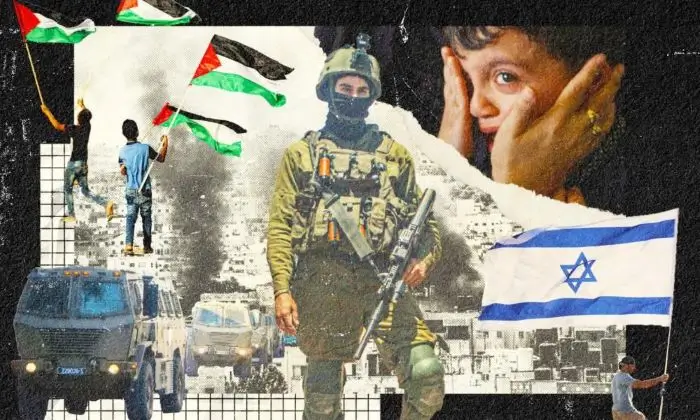The Israeli-Palestinian conflict is one of the longest and most intractable conflicts in the world. It has a complex history dating back to the ancient world and has been marked by violence, bloodshed, and displacement. The conflict has also been a source of regional instability and has had a significant impact on global politics.
In recent months, the conflict has flared up again, with both Israel and Hamas launching deadly attacks on each other. The violence has caused a humanitarian crisis in the Gaza Strip, where millions of people are living under siege. The conflict has also divided the international community, with some countries supporting Israel and others supporting Palestine.
The conflict has raised a number of important questions about the state of world affairs and the future of international relations. One of the most important questions is whether the conflict represents a revival of realism in international relations.
The international community is divided on the issue, with some countries supporting Israel and others supporting Palestine.
Realism is a school of thought in international relations that emphasizes the role of power and self-interest in shaping state behavior. Realists argue that states are primarily concerned with their own security and survival and that they will use any means necessary to achieve these goals.
The conflict can be seen as a classic example of realist theory. Both Israel and Hamas are acting in their own national interests, and they are both willing to use violence to achieve their goals. Israel is using its military power to maintain its control over the Palestinian territories, while Hamas is using violence to resist the Israeli occupation and to achieve its goal of an independent Palestinian state.
The Israeli-Palestinian conflict also highlights the limits of liberalism in international relations. Liberalism is a school of thought that emphasizes the importance of international law, diplomacy, and cooperation. Liberals argue that states can achieve their goals through peaceful means and that they should avoid war and violence.
Both Israel and Hamas are willing to use violence to achieve their goals.
However, the conflict shows that liberalism is not always effective in resolving international conflicts. Despite the efforts of the international community, the conflict has remained unresolved for decades. This suggests that realism may be a more accurate reflection of the realities of international relations.
The revival of realism in international relations has a number of implications for the future of world affairs. First, it suggests that the world is becoming more unstable and dangerous. In a realist world, states are more likely to use violence to achieve their goals, and this increases the risk of war.
Second, the revival of realism suggests that international cooperation will be more difficult to achieve. In a realist world, states are more likely to look out for their own interests, and this can make it difficult to reach agreements on issues of common concern.
Third, the revival of realism suggests that the United States will need to play a more assertive role in world affairs. As the world’s leading superpower, the United States has a responsibility to uphold international order and prevent the outbreak of war. However, in a realist world, the United States will need to be more willing to use its military power to achieve its goals.
The Israeli-Palestinian conflict is a complex and tragic issue. It is a conflict that has been marked by violence, bloodshed, and displacement. It is also a conflict that has divided the international community. The conflict raises a number of important questions about the state of world affairs and the future of international relations. One of the most important questions is whether the conflict represents a revival of realism in international relations.

its soo informative.
ahh its so basic. but good effort.